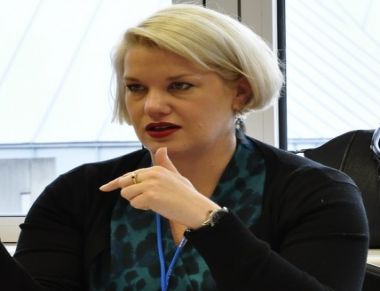New Zealand: a voice for the “silent army” of education support personnel
In the latest episode of EdVoices, the podcast series from Education International (EI), Jane Porter, who leads campaigns for the New Zealand Educational Institute - Te Riu Roa (NZEI) and is a member of the Education International (EI) Education Support Personnel (ESP) Task Force reminds that, in every school, teams of education support personnel work alongside teachers to ensure that all students have the opportunity of a quality education, but too often their work and contributions remain out of sight.
“In New Zealand, we often call them the silent army, they really make sure that those in education institutions can operate and children get support to learn,” she says.
ESP: “very broad categories” of workers in education
Porter explains that because ESP are “very broad categories” of workers in education, over 200 categories in her country alone, they are integral but overlooked in the broader debate surrounding public education systems.
“Everyone knows that you go to school and you have a teacher,” she says, but ESP is an area that has developed in an ad hoc way. “It’s a group that’s evolved because of need but not because of deliberate planning.”
Noting what she refers to as the “emerging role” of ESP in helping students with special educational needs, she explains that, while some job categories, such as school psychologists, librarians or school secretaries, find it easy to fall into the education community, for others it is more challenging to find a place in that community.
“We focus narrowly on tasks, and should focus of what ESP bring to learning,” Porter underlines, insisting that the EI task force very much focuses on the angle of learning, rather than teachers. “Support staff are not here to support teachers, they are here to support education, to support learning.”

[Wed, 12 Apr 2017 09:00:00 +0000] | DIGG THIS
